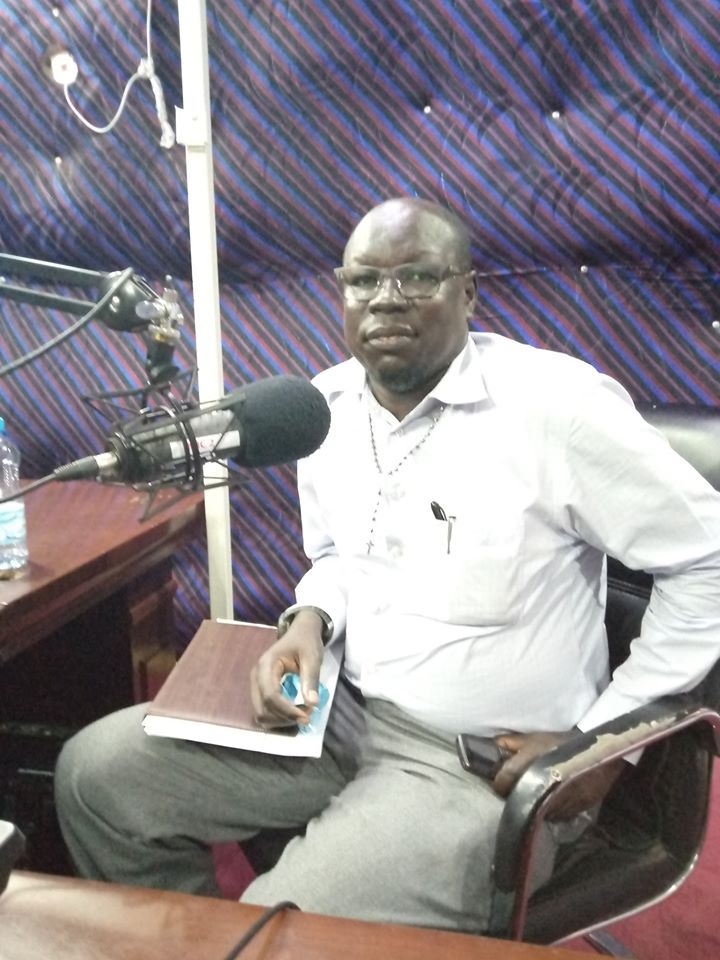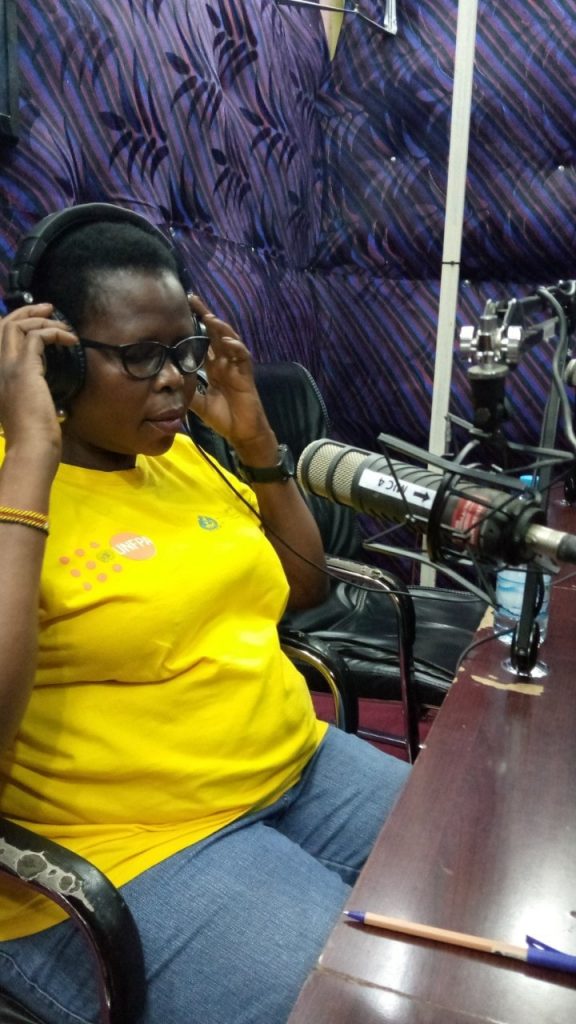RHASS continues to promote SRHR during the COVID-19 pandemic
IPPF’s collaborative partner in South Sudan, Reproductive Health Association of South Sudan (RHASS), is working closely with different media houses to increase public awareness on the impact of COVID-19 on sexual and reproductive health (SRH) in the country. The radio shows have also contributed towards establishing RHASS as a leader in SRH in South Sudan.
RHASS staff, Dr. Abraham John Thubo, a project manager, and Ms. Naima Brown, the head nurse, have been participating in interactive and educative shows in two popular radio stations: City FM Juba and Radio Miraya. The shows have reached a combined audience of over 25,000 South Sudanese, for whom radio is the primary source of information.
City FM Juba is a unique youth focused private, independent commercial radio station based in Juba. It reaches a wide audience through its broadcasts which are mainly in English and in Juba Arabic, a lingua franca spoken in parts of the Equatoria State. Radio Miraya on the other hand, is owned and run by the United Nations Mission in South Sudan (UNMISS). The station covers ten states through relay stations from the capital in Juba.
During the radio shows, Dr. Thubo emphasizes the importance of ensuring access to sexual and reproductive health services for those who needed them during the COVID-19 crisis.
“We inform listeners that despite disruptions from the coronavirus pandemic, it is important to pay attention to their sexual and reproductive health,” he says.
“We let them know that they can access a wide range of reproductive health services from our clinics that are still open. They include family planning, safe motherhood (prenatal, safe delivery and post-natal care), treatment of sexually transmitted infections (STIs) and cervical cancer screening, preventive, and treatment. We also offer information and counseling on comprehensive sexuality education that is mainly targeted at the youth,” he continues.
The discussions also highlight the plight of women and girls during pandemics.
“We are aware of the difficulties that many women face due to restrictions brought about by COVID-19,” says nurse Naima. “Since the vulnerability of women and girls is particularly heightened in times of crisis, we discuss ways women and girls could avoid risks such as unintended pregnancy, unsafe abortion, early marriage, sexually transmitted infections and gender-based violence. We also stress the importance of family planning, including use of condoms.”
Describing the shows as very interactive, Dr. Thubo says many callers want information about the effects of COVID-19 on their reproductive health, as well as where RHASS clinics were located.
“Some callers want to know if COVID-19 could affect their fertility, and about the range of services available at our clinics. Some also want to know what RHASS is doing about taking SRHR and COVID-19 information to remote communities, especially those that are not literate,” he adds.
“Others want to discuss the importance of parents talking to their children about their bodies and ask us how we are sensitizing parents who don’t allow their daughters to talk about their sexuality. We address all these questions and invite the listeners to come to our clinics for more information and services,” he notes.
RHASS continues to provide routine SRH services in the following static clinics: Two family health clinics I and II in Juba (Central Equatoria State); one in Torit (Eastern Equatoria State); and one in Bor (Jonglei State) after putting in place the recommended measure for preventing the spread of COVID-19. It also has supported facilities in Yei (Central Equatoria State) and Wau (Western Bahr El Ghazal State). However, activities involving more than 10 people, including outreach services (mobile clinics), peer to peer educational sessions, workshops, meetings and dialogues have been suspended.

